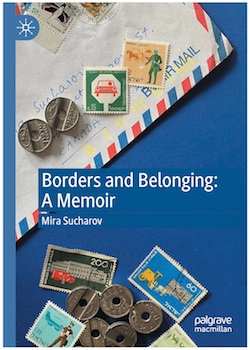Arya Yazgan plays young Sophia in Sophia’s Forest, a chamber opera by composer Lembit Beecher and librettist Hannah Moscovitch, which is at SFU’s Goldcorp Centre for the Arts until June 1. (photo by Anya Chibis)
City Opera Vancouver (COV) presents the Canadian premiere of Sophia’s Forest, a chamber opera by composer Lembit Beecher and librettist Hannah Moscovitch, on stage until June 1 at Studio T at SFU’s Goldcorp Centre for the Arts.
Directed by Julie McIsaac, under the baton of COV artistic director Gordon Gerrard, the one-act opera explores various themes through the story of a young girl, Sophia, who flees civil war and settles in a new country.
“In a time when it’s easy to feel overwhelmed by global conflict, Sophia’s Forest invites us to connect to the individual stories behind the headlines,” said Gerrard. “Composer Lembit Beecher and librettist Hannah Moscovitch have created a deeply resonant story – one that speaks to empathy, resilience and the enduring capacity for hope amidst even the darkest circumstances.”
While Sophia’s Forest is not based on a single true story, it draws inspiration from the lived experiences of many who have endured war, loss and displacement. Through the fractured lens of Sophia’s memory, the chamber opera speaks to the human cost of conflict and the strength required to overcome adversity. Its intimate setting and small ensemble help to magnify the emotional intensity, offering audiences a space for reflection and deeper understanding.
The production integrates live performance with projections by Wladimiro Woyno and an array of mechanical sound sculptures, created from bike wheels and wine glasses, that are controlled remotely in real time by the composer Beecher. These sounds and images – accompanied by a live string quartet – conjure memories and dreams from Sophia’s past: the ring of a wine glass becomes a child’s voice; the whirr of a bike wheel evokes fluttering wings.
For its Canadian premiere, Sophia will be performed by soprano Elena Howard-Scott, Anna (Sophia’s mother) by Adanya Dunn and Wes (Anna’s partner) by Luka Kawabata. Young Sophia will be performed by Arya Yazgan and Emma (Sophia’s sister) by Audrey Gao, both members of the Vancouver Bach Family of Choirs. The chamber opera will include sound design by Richard Berg with costumes by Alaia Hamer.
Sophia’s Forest is COV’s first project in a multi-year initiative that aims to showcase and explore the stories and experiences of newcomers to Canada, including celebrating artists who contribute to Canada’s cultural diversity. For tickets and information, visit cityoperavancouver.com.
– Courtesy City Opera Vancouver



